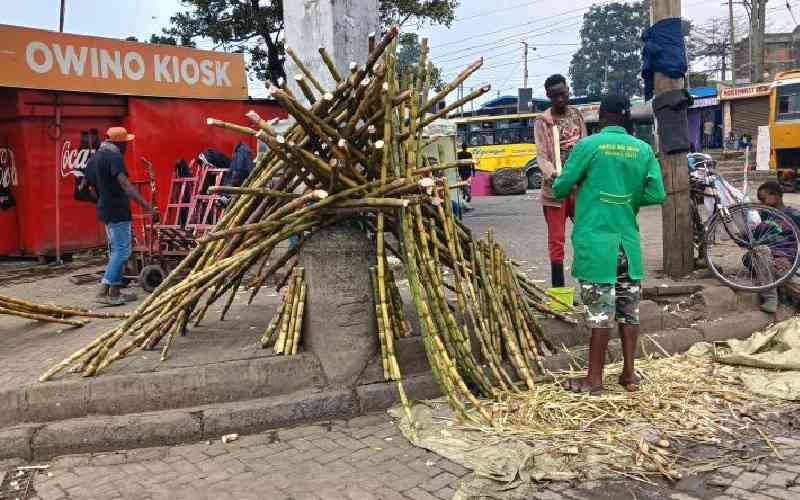
Coast-based Kwale International Sugar Company Ltd (Kiscol) has seen increased cane output from its 1,500 contracted outgrower farmers.
According to the chairperson of Kwale Farmers Sugarcane Association David Ndirangu, continued good rains experienced in parts of the lower Coast have drawn farmers to plant more cane since the commissioning of the milling plant in 2015.
“We are seeing an annual increase in the way the milling plant is crushing. In 2023, the milling plant was active for six months but increased to nine months in 2024′” he said.
“We are projecting to see cane crushing at the milling plant average 11 months come next year,” Ndirangiu told The Standard in an interview.
He said records at the Kenya Sugar Board confirm that what Kwale farmers grow and take for crushing is quality cane.
“I have personally invested in 400 acres of cane and I am reaping from cane sales. Kwale used to be big in cane farming during the times of the defunct Ramisi sugar factory’ which collapsed in the early 80s.”
Ndirangu urged Kwale farmers to expand the farms to boost the sugar sector and increase incomes in the region.
On Thursday last week, Agriculture Principal Secretary Paul Ronoh said Kenya was now sufficient in sugar following recent efforts to revamp cane farming.
Dr Ronoh said in Mombasa that sugar reforms coupled with subsided fertiliser and good rains have resulted in increased production.
“We do not need to import sugar anymore because the reforms we have put in place are bearing fruits. The country has sufficient sugar.”
He said Kenya will soon be exporting sugar to other countries because there is an indication of continued increased production.
On November 14, a Cabinet meeting chaired by President William Ruto noted that Kenya has, for the first time, produced enough sugar to meet local demand.
As a result, the Cabinet resolved that no sugar will be imported this year.
Stay informed. Subscribe to our newsletter
Yesterday, Ndirangu urged the government to write off sugarcane loans in Kwale like it did for Western Kenya to boost production.
He said the Coast has a hot climate that makes cane to mature within one year and hence ideal for profitable farming of the crop.
“We are asking the government to write off loans for the sugarcane sector in Kwale just like it did for Western Kenya to increase production,” he said.
Last year, the Cabinet approved Sh117 billion to offset loans for public sugar factories in the Western region.